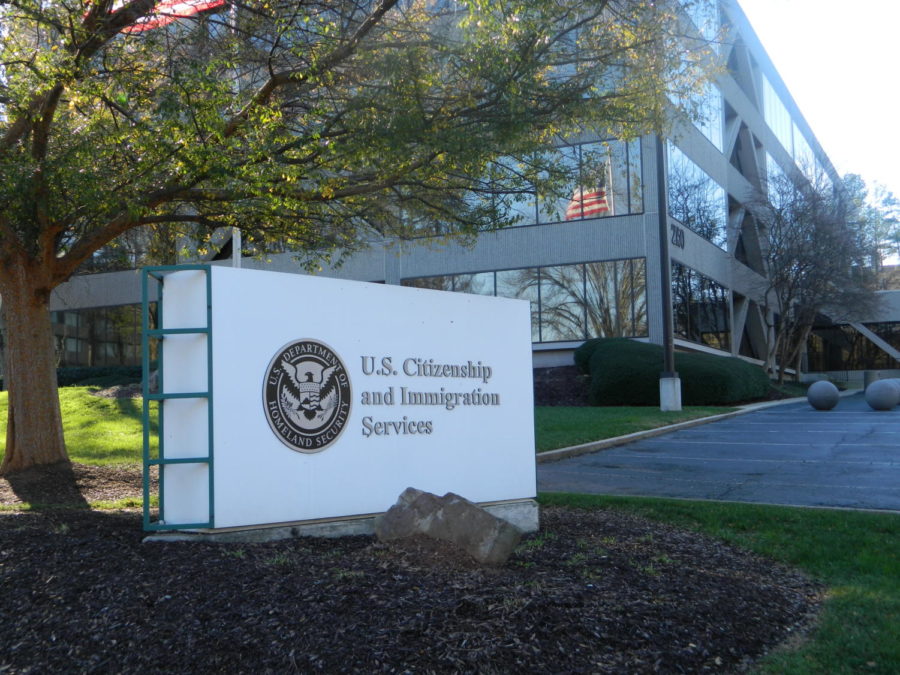Editorial: New immigration proposal is unnecessarily strict
The U.S. Citizenship and Immigration Services — an agency of the Department of Homeland Security — has an office located in Atlanta. The department recently added stipulations which will prevent immigrants who rely on government assistance from obtaining green cards.
September 23, 2018
A new proposal from the Trump Administration could force legal immigrants applying for green cards to make tough decisions — such as choosing between accepting government subsidies to buy baby formula or becoming American citizens.
The proposal released Saturday by the Department of Homeland Security permits the denial of “lawful permanent residency” if immigrants have used some kind of legal government aid, or if they might accept government benefits in the future. This is an unfair and inhumane way to weed out immigrants whom the Trump administration deems unsuitable candidates for American citizenship.
The idea of giving green cards to immigrants who won’t put a financial strain on the country isn’t new. In fact, the government has long required immigrants to prove they won’t burden American taxpayers by accepting cash benefits, but this proposal further specifies what type of government aid disqualifies a candidate.
Those who legally use government benefits such as food stamps and Section 8 housing vouchers could now be denied citizenship, according to the new proposal. Those who participate in the Medicare Part D program — a program for the elderly immigrants to get affordable prescription drugs — could also be denied citizenship.
The proposal further targets immigrants with serious health conditions such as mental disorders or cancer by obligating them to show proof of health insurance. The government has typically defined an individual as a “public charge” if more than half of their income comes from government cash aid programs. But the new rules mean officials will consider whether an individual has existing medical conditions or has enrolled in a subsidized health insurance program — meaning immigrants who signed up for Obamacare could be asked to post a bail of $10,000 to be returned upon achievement of citizenship or departure from the United States.
An estimated 382,000 people each year could be forced to choose between feeding their families and living in safe, sanitary government housing or getting U.S. citizenship. The proposal could also prompt Medicare Part D participants to choose between taking the medications they need or becoming U.S. citizens.
These aren’t the kind of choices any humane government should force on prospective citizens.
An estimated $2.7 billion will be saved annually by deterring immigrants from applying to federal aid programs. But a rule that focuses on the economic viability of immigrants is incredibly shortsighted. It targets people who are hungry and sick and threatens to make them even hungrier and more sick.
The Trump administration’s efforts to paint immigrants as a financial burden are not only inhumane, but inaccurate. A Cato Institute report from earlier this year shows that natural-born citizens are more likely than immigrants to use welfare. The average value of welfare benefits for each immigrant in 2016 was about $3,700 as compared to about $6,000 in welfare benefits per natural-born citizen.
Trump’s new proposal is another cheap shot at immigrants to attempt to win votes this November, but no one should have to worry about giving up basic necessities like food, decent housing and healthcare in order to continue living in the United States.








